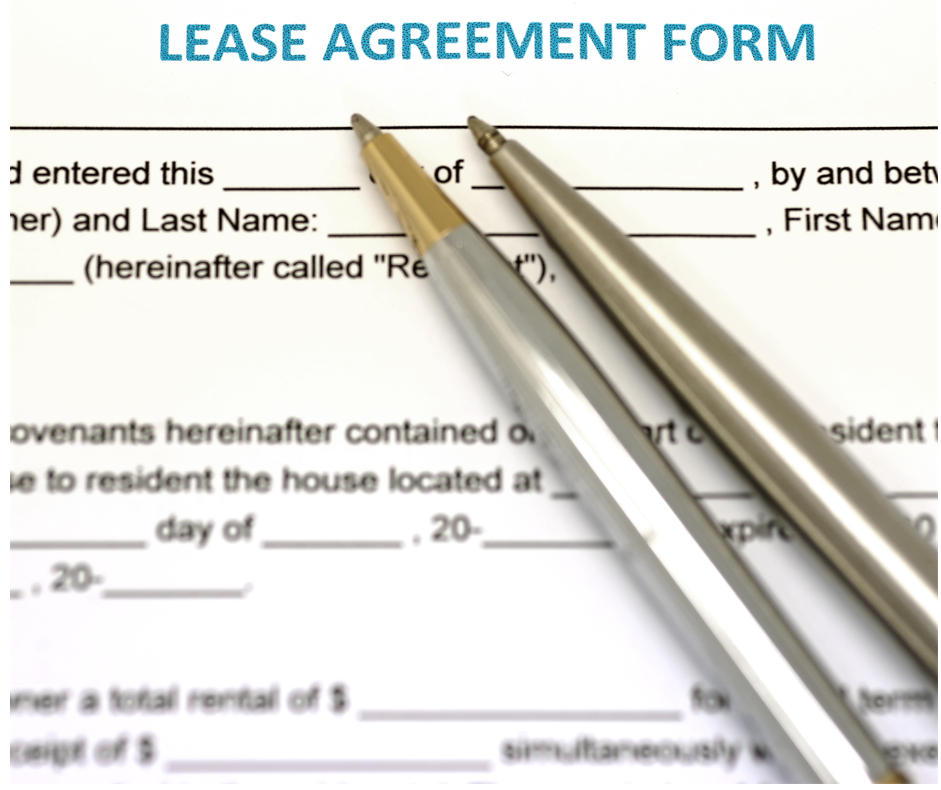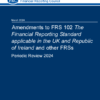
by John McCarthy Consulting Ltd. | Nov 1, 2021 | Blog, News
Recent changes to the Ethical Standard for Auditors in Ireland mean that there is much less chance of auditing being a dull profession! The changes are the first to arise since the previous standard was issued in April 2017 and, following representations from the professional bodies, were postponed by over a year to allow for the impact of Covid-19.
Over the course of the next few weeks, we will be writing a number of blogs on the changes to the Ethical Standard for Auditors that have become effective since 15 July 2021 and as time moves on, implementation and the implications of these changes becomes more and more important , especially where they are not fully appreciated at the outset.
The first of these changes that we want to speak about is the change in emphasis of the definition of the ‘Reasonable and Informed Third Party’ (‘RITP’) which is a test of auditor independence.
This test applies especially at the planning stage but also, all throughout the audit, when the auditor is considering the independence of the audit firm and the audit team. Ethical Standard 1 now requires consideration of independence matters to be evaluated by reference to the perspective of an objective ‘RITP’.
The new definition of the ‘RITP’ refers to third party stakeholders which include, for example, the Revenue Commissioners, suppliers, customers, employees, management and shareholders of the audited entity. The previous definition referred to the ‘RITP’ as another audit practitioner. The change in emphasis could become a little more rigorous and challenging in certain circumstances.
There has also been a change in the scope and emphasis of the International Education Standard 8 (IES 8), which focuses on the reflection and planning of Audit Partner’s training requirements, but more on that next week.
For more details and implementation support on these changes, please refer to our just published Audit Quality Control Manual (implementing the latest Irish Audit & Accounting Supervisory Authority standards including ISQC1 on audit quality control). View the Table of Contents here.
We also have an up to date Anti-Money Laundering Procedures Manual (September 2021) – View the Table of Contents here.

by John McCarthy Consulting Ltd. | Oct 22, 2021 | Blog, News
What’s the difference in treatment of investment property between FRS 105 and FRS 102?
Too many accountants rely on the computer software to produce the correct result, which can go badly wrong. You can’t beat reading the standards themselves. In this case, the March 2018 version (as amended) of FRS 105 and more particularly Section 12 of FRS 105 which deals with Property, plant and equipment and Investment Property.
Investment property assets are normally carried at revaluation under Irish GAAP i.e. FRS 102, but it’s dangerous to assume that FRS 105 allows the same treatment. For the purposes of this blog, I am ignoring the FRS 102 options for investment property, which allow for cost/fair value models, in certain circumstances. Instead I want to focus on the fact that FRS 105 removes most FRS 102 options.
Where the company owning the property is a ‘micro-entity’ (as defined in the Companies Act, 2014 with turnover €700k, gross assets €350k, and less than 10 employees), it is not allowed apply the alternative accounting rules/fair value accounting rules under FRS 105, because the Companies Act, 2014 does not permit the use of these options.
Therefore, investment property must be carried at cost under FRS 105.12.3 and the knock-on effect of this is that the investment property must also be depreciated under FRS 105.12.15 because that is a requirement of the cost model.
The bottom line is that if you have ‘small’ (as defined in the Companies Act, 2014) company clients who wish to report investment property assets at revaluation or at fair value, then they must adopt FRS 102 Section 1A (as amended) or else the full version of FRS 102 (March 2018) (as amended).
For more blogs please visit this link and for our publications and manuals and services click here.

by John McCarthy Consulting Ltd. | Sep 16, 2021 | Blog, News
As far as accountancy firms go, there is a requirement for each firm to prepare an anti-money laundering (AML) written risk assessment (known as the firm-wide or business risk assessment) examining the business/practice in five key areas (more on this below). The legislation that brought this into place is section 30A of the Criminal Justice (Money Laundering and Terrorist Financing) (Amendment) Act, 2018, which became effective on 26 November 2018. The various professional bodies are examining these risk assessments in their recent practice inspections.
The risk assessment must be kept up to date but there is little clarification in the legislation about ‘what up to date’ means. If your practice has essentially not changed in structure/number of offices or the services it offers since you prepared your first risk assessment in 2018, now is a good time to give it a brief refresh. If there have been more fundamental changes, including new Partners/services, then a more detailed refresh is required.
More guidance on this topic has been prepared by the Consultative Committee of Accountancy Bodies–Ireland (CCAB-I) and is available here as CAI Technical Release 01/2019. The five key areas that must receive attention in the document are:
- clients – locally based are generally less risky than overseas clients;
- the products and services provided – bookkeeping is generally less risky than liquidation work;
- the countries the clients operate in – clients based in sanctioned territories, or Irish clients doing business with such countries are usually prone to more money laundering (ML) risk;
- the transactions the firm is involved in – decision making on behalf of clients is usually a higher trigger point for risk; and
- the delivery channels – with remote delivery seen as more prone to ML risk.
There will sometimes be overlap between these risk factors, and this is explained in more detail in the guidance and in the template available below.
A template to help you prepare the Firm-Wide Business Risk Assessment is available here for €60+VAT for immediate download in word format.
For more blogs please visit this link and for our publications and manuals and services click here.

by John McCarthy Consulting Ltd. | Sep 13, 2021 | Blog, News
In response to the continuing impact of Covid 19 the Financial Reporting Council (FRC) has extended the accounting requirements for special conditions for reporting rent and lease concessions/reductions under FRS 102 and 105 well into next year. The change will enable businesses to present a clearer picture of their performance in year-end accounts.
Many entities have struggled to pay rent and meet lease payment commitments for their rental properties. This has led to negotiations between tenants and landlords in the form of rent concessions (deductions in rent or waivers) or rent deferrals (an agreement to pay rent or lease payments until a later date).
According to the FRC, the prolonged duration of the pandemic has made it necessary to extend the existing reporting time for a further 12 months to 30 June 2022 to help ensure consistency and accuracy in financial reporting and in such a way that best reflects their substance. The disclosure of the reality of rent concessions for businesses, will achieve a true and fair presentation by recognising the reduction in full for the period concerned.
The concession means that if a business doesn’t have to pay rent for a given month, no expense will be recognised for that month. Prior to the advent of Covid-19, a rent reduction would have been recognised over the life of the lease.
The main conditions of the proposals contained in FRED 78 are:
- Entities must recognise changes that reduce lease payments in the period to 30 June 2022, and meet the other specified conditions, on a systematic basis over the periods that the change is intended to compensate, rather than spreading the impact of the change, over future lease periods.
- The amendments are effective for accounting periods beginning on or after 1 January 2021, with earlier application permitted.
The net impact will be that if the business doesn’t have to pay rent for a given month, no expense will be recognised for that month thus allowing companies to report a more accurate picture of their cash management, performance, and rent-related support measures, reflecting the businesses’ economic reality.
There are rumours that the FRC may seek to extend the reporting period again, at least until the end of the pandemic, especially if there are further lockdowns, during winter, potentially leaving the retail sector in the same position as before.
For more blogs please visit this link and for our publications and manuals and services click here.

by John McCarthy Consulting Ltd. | Sep 13, 2021 | Blog, News
Recently while researching material for one of my anti-money laundering (AML) training courses, I came across the 5 page anti-corruption policy of Tesla, the electric car company. It states in bold print…. ‘Boiled down to its essence, our policy is: Don’t offer any bribe to anybody, anytime, for any reason.’
Tesla’s brief and to the point anti-bribery policy explains, “Involvement in bribery or corruption can result in lasting damage to our brand and our reputation. It can also result in multi-million-dollar fines and penalties, plus jail time for participants.”
The message is loud and clear. If any business wants to remain respectable and maintain its reputation it needs to communicate this to its employees and associated third parties. It’s much more effective than merely saying… “we don’t do corruption because I said so”.
Money laundering is often stage two of a crime or series of crimes that have already occurred e.g., the bribe has been given/accepted and now needs to be ‘concealed’ – ‘concealment’ being a key feature in AML cases.
Other reasons why money laundering, bribery and corruption are bad ideas include:
- Bribe takers/payers become hostages to fortune – they are always at risk of being pressured into taking/making more bribes. Once is never enough.
- Often, bribes are paid through intermediaries who can become blackmailers.
- Bribes will usually lead to the accounting records of the entity being falsely prepared to help hide the original illegal act, leading to a wider range of offences including indictable offence reporting to the ODCE where an audit client is involved. They go into the books as something else — consultancy fees, motor expenses, transport costs, commissions etc.
- Bribery leads to greed. Demands for bribes can be very “fluid.” Once the payer reveals a weakness in being open to giving a bribe, the bribe taker’s appetite for more becomes unquenchable.
- The risk of fraud is multiplied. Where intermediaries are involved, they may say the bribe is for €5,000, but how can the bribe payer know for sure?
- Bribery often triggers other criminal activity which ensnares those involved. People often fall into the intellectual trap that says “I deserve this, it’s so small, it’s just this time”
- While bribes can help a company enjoy short-lived success, in the end it leads to misery.
See the World Misery Index produced by Johns Hopkins University Professor Steve Hanke. The index assumes that higher unemployment and worsening inflation create economic and social costs for a country leading to more crime. The index is built using the sum of the country’s interest, inflation, and unemployment rates, minus the year-on-year percentage change in per-capita GDP growth.
In the latest version of this index from 2020, with 156 countries included, Venezuela comes out as the most miserable country in the world and Ireland at 135th, is much less miserable than the US (109) and the UK (87).
For more blogs please visit this link and for our publications and manuals and services click here.

by John McCarthy Consulting Ltd. | Aug 30, 2021 | Blog, News
The term money mule refers to the transfer of illegally obtained funds between bank accounts on behalf of others. According to a recent report by FraudSMART in the first 6 months of 2021 alone, over 700 ‘money mule’ transactions totalling €5 million moved through several bank accounts.
The majority of these cases involved accounts belonging to 18–24 year olds who are assisting in committing money laundering, which carries a maximum 14 year prison sentence. The Garda have appealed to young people and their parents to be aware of the serious and long reaching consequences of money muling.
The FraudSMART report details what to look out for in potential money muling recruitment scams with social media being the main platform for recruiting young people who are being targeted more than ever. Unsolicited texts or emails with the promise of “easy money” are commonplace and the Garda and FraudSMART are appealing to people to familiarise themselves with the red flags to look out for.
FraudSMART is the fraud awareness initiative led by the Banking & Payments Federation Ireland (BPFI) and is supported by An Garda Síochana Crime Bureau who have more details on money muling on their website here.
For more blogs please visit this link and for our publications and manuals and services click here.











